Frederica Freyberg:
I’m Frederica Freyberg. Tonight on “Here & Now,” a first look at the flap over accommodations for a disabled legislator. After that, a closer look at the future of tuition within the UW System. Then, an inside look into Wisconsin’s plans to boost outdoor tourism. It’s “Here & Now” for August 2.
Announcer:
Funding for “Here & Now” is provided in part by Friends of Wisconsin Public Television.
Frederica Freyberg:
A disabled legislator does battle with Speaker Robin Vos over accommodations at the Capitol. In tonight’s first look, we talk with Democratic State Representative Jimmy Anderson, who already missed a vote on the lame-duck law because he couldn’t stay at the Capitol overnight. He now seeks to be able to telephone in to public hearings. Vos says phoning in is disrespectful and Assembly rules don’t allow it. Anderson is paralyzed from a crash caused by a drunk driver. We reached out to Speaker Vos for clarity on this and didn’t hear back. He did, however, send a letter to Representative Anderson calling what he’s doing “political grandstanding.” We started by asking the representative’s reaction to that.
Jimmy Anderson:
I just think it’s really unfortunate the way that he’s painting out the situation. I’m simply asking for accommodations that are owed to me under the ADA, and Speaker Vos has been aware of my accommodation requests all the way back in January, and has ignored them for months. So I think that the only way I’ve been able to get him to pay attention to these issues is being able to talk about them in the media and have the people of Wisconsin put pressure on him to do the right thing.
Frederica Freyberg:
And yet he said that you did not go directly to him or HR with your request to be able to phone in to public hearings, but he heard it through the media, saying that calls into question your seriousness. What about that?
Jimmy Anderson:
I take my disability very seriously, so I think it’s — he’s completely misconstruing the proper way in which we’re going to address this problem. You know, whenever I have disability request that are related to something that’s like physically with the building, whether it’s voice recognition software for my laptop or changes being made to my desk, for instance, I’ve gone to the sergeant’s office and those accommodations have been provided. This was a change to the Assembly rules that requires a vote by resolution, and the way that we change these rules has always been negotiations between Democratic and Republican leadership. So what I did was I went to Democratic leadership and said, “These are the accommodations I need. This is the proper process.” And we went through the proper process and Speaker Vos said “No, I’m not going to provide those accommodations.” I don’t know how much more clear he could have been on the issue.
Frederica Freyberg:
He does say, and as you acknowledge that some accommodations were made, including a special microphone, special voting equipment and cab fare for when a staffer would take you home. Describe specifically for us why you need this additional accommodation to call into hearings?
Jimmy Anderson:
So again, I think part of the problem is that Speaker Vos, when he says that people are driving in for hours, why can’t you just drive in, Jimmy? It’s a difference between being able to have the autonomy to decide when you’re getting up in the morning and what someone like me as a quadriplegic faces. I have to rely on other people in order to help get me in and out of bed or to get me dressed, for instance. And you know, for instance, my morning healthcare provider, she has a kid that needs to go to daycare and as anyone with children knows, sometimes kids don’t cooperate. So if she’s 15, 20 minutes late, that means I’m 15 or 20 minutes late. And so being able to call in to the mornings, I have access to a phone 24/7. So if she’s running late, I can still call in to my committee hearings and participate. And you know, that’s what my constituents want. They elected me, wheelchair and all. They understood this was going to come with certain accommodations but if I’m not allowed to participate in the process, they’re being disenfranchised essentially.
Frederica Freyberg:
At this point, the speaker says he will have a videographer at public hearings if you give him adequate notice for that and he will propose allowing paper ballots for voting in executive session. He says he hopes you find this satisfactory. Do you?
Jimmy Anderson:
Not at all. I mean a videographer is essentially saying I can watch the proceedings but I can’t participate. I can’t ask questions. I can’t provide insight. I mean, the very point of these committee hearings is so we can all lend our expertise and our own experiences to make our legislation better for people in our districts in the state of Wisconsin. So the idea that I’m still not allowed to participate completely misses the point. As for the paper balloting, I think it’s a fine idea. It’s not something I specifically asked for, but if it makes the legislation or it makes the legislature better and other members want it, I’m fully supportive.
Frederica Freyberg:
Now as you well know, in 2017, legislators could appear by web camera, but rule changes that year eliminated that provision, and you voted for that change. Why?
Jimmy Anderson:
So that was my very first vote essentially of the legislature and I’d never served in office before. I didn’t know what it was like, what the experience was going to be like, what I was going to need as a disabled legislator, so as I went through that first year, after that terrible lame-duck session, I understood what the accommodations I was going to need, so that’s why I made those requests. Knowing what I learned after that first year, I never would have supported a similar rule in the future.
Frederica Freyberg:
Speaker Vos, and we should say again that he did not respond to our requests for an interview on this or comment on it, but he describes it as disrespectful to have one person appear by speakerphone while citizens take time out to testify before committee in person. What about that idea of it being disrespectful?
Jimmy Anderson:
I think it’s disrespectful what he’s doing to my constituents. The fact that he’s not allowing me to be able to be as full a legislator as humanly possible. And the thing is our Senate already operates this way. They’re already able to use speakerphones and for the most part, I’ve always been able to attend in person as long as things have been reasonably scheduled. I’m happy to be here. I enjoy being here. I love doing this job, but there are those small instances where my disability requires these accommodations. So to deny me those accommodations is what I think is disrespectful.
Frederica Freyberg:
Now you’ve taken exception to the way the lame-duck session happened, a vote at 4:30 in the morning, which you missed. Why couldn’t you be there?
Jimmy Anderson:
So being in this wheelchair, I can’t be in this wheelchair for extended periods of time. It’s dangerous to my health, not only that, but again, I’m relying on other individuals to help me during the day. So in that instance, at around, you know, 9:00, 10:00, I started messaging Republican leadership saying I need to know when we’re going to be on the floor because I have a home health aides I have to schedule. They essentially gave me a shrug and said we don’t know. So I had to go home because if I didn’t go home at that hour, I wouldn’t be able to go to bed. I couldn’t get out of my chair. It could have been really dangerous for me personally. So that’s why I ended up missing the vote that day.
Frederica Freyberg:
As to that, you asked the attorney general, Josh Kaul, to review that vote to see if it violated the open meetings law. What’s the status of that review to your knowledge?
Jimmy Anderson:
So we’re still waiting. Open meeting laws say specifically that if any duly elected member is excluded from a meeting of the legislator, the laws that were passed, that they are invalid. My argument is that Speaker Vos and the Republican leadership were aware of my disability, knew that I had to go home because of my disability and yet continued to hold this vote anyway. So we’re still waiting to hear back from, you know, Attorney General Kaul.
Frederica Freyberg:
Lastly, Speaker Vos says he has always made sure the Assembly abides by the Americans with Disabilities Act. Have you sought outside opinion on whether Assembly rules do, in fact, conform to the ADA?
Jimmy Anderson:
Under what Speaker Vos is currently doing, absolutely not. The DOJ has already put out a primer explaining what state and local governments have to do in order to meet the ADA and they specifically talk about providing a teleconference system for people with wheelchairs or people who need that because of a disability. They’ve already spoken on this issue. He’s not following — he’s in fact breaking the law right now.
Frederica Freyberg:
We need to leave it there. Representative Anderson, thanks very much.
Jimmy Anderson:
Thank you so much.
Frederica Freyberg:
Fall semester at UW campuses is about a month off, and the new academic year has university leaders increasingly voicing concerns about the tuition freeze coming into its seventh year. Thats because the state budget did not back-fill that freeze. Instead the UW System saw a $58 million increase over two years. Less than half what Governor Tony Evers had proposed. System President Ray Cross says it would take $60 million just to keep up with inflation. There are several legislative bills circulating related to tuition and a campaign on the part of the system to herald the value of the UW to the state. To talk about all of this, were joined now by UW System President Ray Cross. Before we begin, we should note that WPT is part of the university. President Cross, thank you very much for being here.
Ray Cross:
Good to be here Frederica.
Frederica Freyberg:
So as the UW prepares for students to converge with the fall semester, what are your concerns with this year marking the seventh of a tuition freeze?
Ray Cross:
Well, we believe, and I think you see that the legislature — both parties — are introducing bills that reflect their desire to increase the investment in the university. And that’s something that we think is needed. And we’re really pleased to see that conversation taking place. That’s one of the reasons, too, that we are embarking on this “All in Wisconsin” as you call heralding the value of the university. We think people across the state need to have a better sense of how the university impacts their lives, the value it brings, the additional living — the lift in the living wage that it provides on average of a million dollars a year, so — and the investment itself is like 23 to 1 in the university. So we bring a great return to the state and helping people understand not only the abstract numbers at a high level but also the impact it directly has on their lives.
Frederica Freyberg:
Are you specifically trying to connect the dots between the value of the UW System to the state of Wisconsin and increasing tuition? I mean, you want this kind of what really is kind of a PR blitz to convince people, yes, the time is now to do this?
Ray Cross:
Well, it isn’t just that we’re seeking to increase tuition. We’re seeking an increased investment, whatever form that takes. We cannot maintain quality without sufficient investment in the university. And I think that’s obvious to members of both parties.
Frederica Freyberg:
Now, you have said that the state budget does not provide enough funding to cover necessary investments. Like what?
Ray Cross:
Well, let me take a couple of things. First of all, the compensation that our employees receive. The university has to pay 30% of that. That traditionally came from tuition. So our portion of tuition would cover that compensation increase for our employees. That’s not being covered at this point, so that’s about $16 million of that actually $45 million that we’re getting right off the top. So that’s a piece of it. The other elements in this include the normal cost of inflation for which is roughly 2.4%, for goods and services we have to buy. So that’s an additional significant amount of money. On top of that, there are a number of investments we need to make to meet the needs of the state, including producing more nurses, more engineers, more data scientists and more teachers. And those different fields require increased investment. Now it’s true, we have reallocated funds, there’s no question, in order to support those more strongly. But we still can’t grow in those areas as fast as we need to.
Frederica Freyberg:
But meanwhile, what about campuses already struggling with a budget crunch like UW-Stevens Point in the face of this budget picture you paint?
Ray Cross:
Well that’s a very serious issue. The demographics particularly in the north central part of Wisconsin and Stevens Point is right in the middle of that. The demographics are seriously impacting their enrollment, and that’s a challenge. On top of that when you have not just frozen tuition but reduced investment from the state over the last eight years that complicates their financial picture. And they’re dealing with that as aggressively as they can, but the lack of state resources, additional investment of state resources complicates their situation.
Frederica Freyberg:
Now one Republican lawmaker, as you know, is already kind of preparing for a lift of the tuition freeze with a proposal that if lifted, tuition could only be increased at the maximum — to the maximum of the consumer price index, which is what — under 2% lately. What do you think of this particular proposal?
Ray Cross:
Well, I think it’s about 2.44% right now, but I think the Chapter 36 gives that responsibility to the board. The board’s role is to analyze the needs of the system and set tuition, and that’s the responsibility of the board. I think there are ways to work together with the legislature so the appropriate oversight is possible, but I think mandating that in statutory language is a bit too much.
Frederica Freyberg:
Republican Senator Steven Nass is pointed in support for a continued tuition freeze, as I know I don’t have to tell you, and calls into question how careful the UW is with its spending. What do you say to him and other lawmakers who might feel similarly?
Ray Cross:
Well, we’ve done a lot to control our expenses, but there comes a point when there needs to be an investment in the university. What have we done — if you think about it, the restructuring process that we’re going through, that will not recoup or save us a ton of money initially. It wasn’t intended to. But over time, we’ve actually eliminated a whole institution within the system. We’re shifting resources from administrative responsibilities to the classroom. We’re doing things like that on an aggressive basis, but you can only go so far in that process.
Frederica Freyberg:
All right. We need to leave it there, President Ray Cross, thanks very much.
Ray Cross:
Thank you Frederica.
Frederica Freyberg:
State lawmakers are grappling with how best to support struggling Wisconsin farmers amid a lack of resources. Last week, the Joint Finance Committee delayed funding for farmer mental health programs. And on Monday the Speakers’ Task Force on Suicide Prevention heard testimony from those working to help farmers dealing with chronic stress, depression, and thoughts of suicide. In a web interview, Marisa Wojcik heard from UW-Extension Agricultural Health and Safety Specialist John Schutske, who’s spoken to thousands of farmers working to find a pathway forward that’s more proactive.
John Schutske:
In Extension and here at the University of Wisconsin, we care deeply about the people in our communities with our connections as part of the Wisconsin idea, we want to make sure that we’re doing programming that’s responsive not only to mental health and stress management and family relationships, but we also need to give people kind of a pathway forward so we’re putting a lot of effort into financial tools for farmers and families and community members so that they can begin to plan for a more positive future.
Frederica Freyberg:
To see that full interview, you can visit our website at wpt.org.
In a follow-up to our story last week about contamination of PFAS chemicals in water, Wisconsin Attorney General Josh Kaul has signed on to a letter urging Congress to list the compounds as hazardous substances. Without this designation, the Environmental Protection Agency is limited in its ability to enforce testing and clean-up of contaminated sites. The letter, signed by 22 state attorneys general said, “Public understanding about the serious risks that PFAS contamination poses to human health and the environment is growing. Without federal legislative action to assist states and communities that are responding to this burgeoning threat, the public may lose confidence in the safety of its drinking water sources, consumer products and other routes of exposure to other dangerous levels of PFAS. Currently no federal standard exists to regulate PFAS and Wisconsin’s timeline for passing a standard could be years away.
Tourists in Wisconsin spend an average of $18 billion a year on outdoor pursuits. That’s according to the Department of Tourism, which is looking to expand on that idea. In tonight’s inside look, Zac Schultz sat down with Tourism Secretary-designee Sara Meaney in an ongoing series where we hear from Governor Tony Evers’ cabinet members. Zac started by asking her what the department’s new Office of Outdoor Recreation plans to do.
Sara Meaney:
What we’ve seen around the country is actually a trend of greater focus on outdoor recreation and the same is true in Wisconsin. Wisconsin relies really heavily on outdoor recreation and in fact over $18 billion of economic impact is directly as a result of outdoor recreation and 168,000 jobs in the state are outdoor recreation related. So what it’s intended to do is actually take what is already an existing strength and connect more entities, organizations and activities together to build upon that strength and build greater economic activity. So really we’re looking to build more jobs, attract more businesses, increase community connectivity as a result of outdoor recreation and of course attract more visitors.
Zac Schultz:
Tourism already promoted the outdoors, so why do you need a new office to do that?
Sara Meaney:
This is true. Outdoor recreation has always been a part of the story we’ve been telling coming out of tourism. The Office of Outdoor Recreation doesn’t exist solely to promote outdoor recreation. Instead it’s actually meant to uplift and connect the parties that actually work together to ensure the success and growth of the outdoor rec industry. So think of it as an economic development activity as well as a promotional activity, but ultimately it’s about bringing more people to the table to share goals.
Zac Schultz:
So is this focus more on out of state or in-state people?
Sara Meaney:
Actually the answer is both. So we know about just under 70% of Wisconsinites participate in outdoor recreation activities on a regular basis but we also know that outdoor recreation is the number one reason people come to the state of Wisconsin from out of state. So those two things together only make sense that we want to put an additional focus on that and put our money where our mouth is, really. We should be using more data. We should be focusing on research. We should be looking to opportunities to have more collaboration among entities that are already doing similar work, or who can benefit from each other’s expertise.
Zac Schultz:
Is there a shift in philosophy at the Department of Tourism compared to the last eight years under Governor Walker?
Sara Meaney:
I mean, I think that’s hard to comment on. What I can say is one of the things we’re focusing on moving forward is making sure that we have the best data and the best information we can to make great decisions on behalf of the taxpayers of the state of Wisconsin. I mean, primarily the work that we do out of the Department of Tourism is drive economic growth. It’s an economic engine. It’s the third largest industry when you look at tourism as a composite industry, and it’s nearly 200,000 jobs. So what it really is, is it’s a play to ensure the success and health of a major industry in our state while at the same time much of our activity is about promoting awareness and participation among travelers.
Zac Schultz:
According to the Wisconsin Statewide Comprehensive Outdoor Recreation Plan, we need to find more places for people living in our cities to enjoy the outdoors. Is that something that this office will look at or is that a different area?
Sara Meaney:
Well, the SCORP that you’re referencing certainly coming out of the DNR is an important piece that will guide the work of the Office of Outdoor Recreation. This is not meant to actually duplicate but instead work in collaboration with and in parallel with the plan that is already in place on behalf of the DNR. So the work will not be so much overlapping as it will be building off of one another. I work very closely with the secretary of the DNR. He and I are very much in agreement that our work is about collaboration. So I’m looking forward to being able to take what is such a strength of DNR and their knowledge of our lands and waters and then adding to that a layer of promotion and engagement from around the state.
Zac Schultz:
A lot of tourism ads where what we’ve showcased of come explore seems to be driving people to the outdoors, the rural environment, or the north woods. Does there need to be a showcase more on what we have in our urban areas?
Sara Meaney:
Well, I mean, that’s always an important balance that we have to strike, right? Certainly the two largest visitation centers of our state are the two largest cities of our state. That’s simply by volume. However, we also know that, research tells us, the awareness of especially non-Wisconsinites, the awareness of our cultural heritage, museums and, you know, food and city attractions is actually lower than it should be. That’s not to say that the efforts haven’t been there to do that or that the focus has only ever been on outdoor recreation. What’s important is we strike a balance so people understand the full breath of what it is we have to offer. Now how does that play out? No one visitor goes to a new place to do one thing. They want to do a variety of things. And the good news is, Wisconsin has incredible activities both inside and outside, and all four seasons of the year. So that’s what our work is going to be focusing on. Certainly that means moving people around the state, not simply staying in one area.
Zac Schultz:
The report talked about the growing populations in both the Latinx and African-American communities in Wisconsin. What are you doing to reach out to those communities?
Sara Meaney:
That’s great. So we have a lot of work to do. Wisconsin is actually falling behind its neighbors in terms of attracting visitors of color. It’s something that we need to do intentionally and with eyes wide open. We will be seeking in the future input from a much more diverse group of people to help advise us on the best ways to do that. But that’s the responsibility of our promotion. That’s the responsibility of our attractions and our regions to ensure a welcoming environment but also make sure we’re offering the things to do that people are looking to partake in. And again, data and research is helping us understand that even better, and then we can align how we promote ourselves and how we actually develop our attractions.
Zac Schultz:
When you look at the Travel Wisconsin website, you see mostly white people and white families enjoying things. And when there are representations of people of color, it’s often in an urban environment doing urban things. Would you want people of color, communities of color to go camping, go to the north woods, take up fishing and hunting?
Sara Meaney:
Absolutely. Absolutely. We actually know people already do. The participation in outdoor activities is kind of without color, but not in all equal participation rates. So what we have to do is keep in mind that not everyone does all same things at the same rates, and yet our offering is available to all and needs to be welcoming to all, and that work is still ahead of us.
Zac Schultz:
The Republican-controlled Senate has yet to confirm any of Governor Evers’ cabinet secretaries, you included. Does that impact how you’re able to do your job?
Sara Meaney:
No, frankly it does not. I’m certainly excited to get the stamp of approval when that comes around, but my day is still exactly what it was intended to be. I’m still at the table doing the work I said I was here to do. It hasn’t changed anything, and I think I’m really proud of the work we’ve done in basically 6 1/2 short months. We’ve achieved quite a bit and I think the tourism industry would agree with that. So looking forward to that.
Zac Schultz:
Do you think the lack of confirmation gives the Senate any more leverage over any decision you might make?
Sara Meaney:
I don’t believe so, no. I think my work stands for itself and the work of the department is guided by a strategic plan that received input from, you know, a lot of people from around the state within the tourism industry. So frankly tourism is non-partisan. It’s not red, it’s not blue, it’s green. It’s about money. It’s about economic development and that helps everyone and that affects 72 counties of our state.
Zac Schultz:
Thank you very much for your time.
Sara Meaney:
Thank you.
Frederica Freyberg:
A fifth lame duck lawsuit is taking shape. The latest, State Attorney General Josh Kaul is being sued by the Republican legislature over powers to settle lawsuits and where settlement payments can go.
And the fight continues over the state budget. This time over the governor’s partial vetoes. The conservative Wisconsin Institute for Law and Liberty filed a lawsuit this week alleging that the governor’s powerful veto authority allows him to write new laws. The group says this violates the state’s separation of powers. Evers calls the suit partisan, saying the state needs to move on after his victory last November. The challenge will be heard by the state Supreme Court, which received its newest member, Justice Brian Hagedorn, who was sworn in Thursday. And that is our program for tonight. I’m Frederica Freyberg. Have a great weekend.
Announcer:
Funding for “Here & Now” is provided in part by Friends of Wisconsin Public Television.
Search Episodes
Related Stories from PBS Wisconsin's Blog

Donate to sign up. Activate and sign in to Passport. It's that easy to help PBS Wisconsin serve your community through media that educates, inspires, and entertains.
Make your membership gift today
Only for new users: Activate Passport using your code or email address
Already a member?
Look up my account
Need some help? Go to FAQ or visit PBS Passport Help
Need help accessing PBS Wisconsin anywhere?

Online Access | Platform & Device Access | Cable or Satellite Access | Over-The-Air Access
Visit Access Guide
Need help accessing PBS Wisconsin anywhere?

Visit Our
Live TV Access Guide
Online AccessPlatform & Device Access
Cable or Satellite Access
Over-The-Air Access
Visit Access Guide
 Passport
Passport





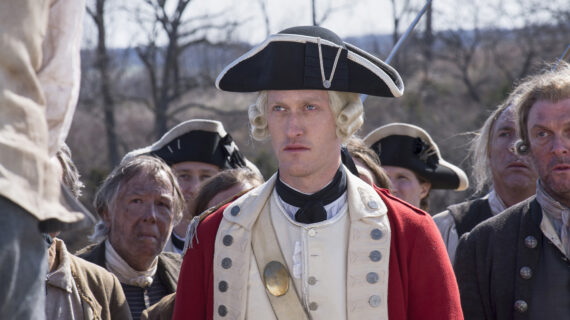
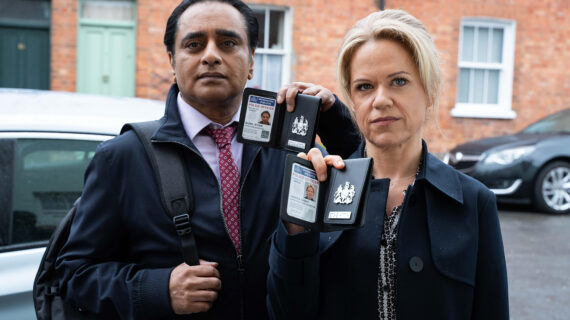
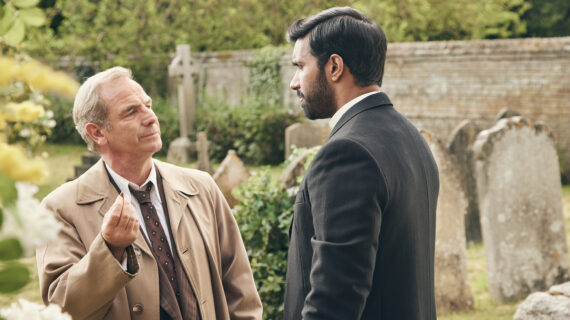


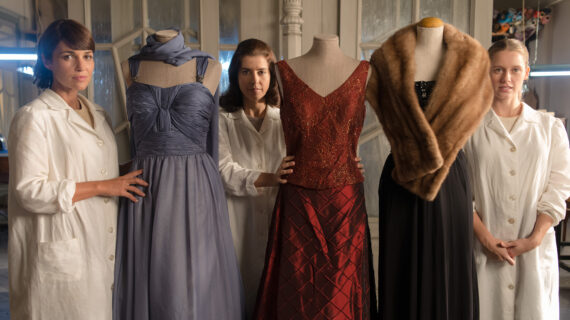


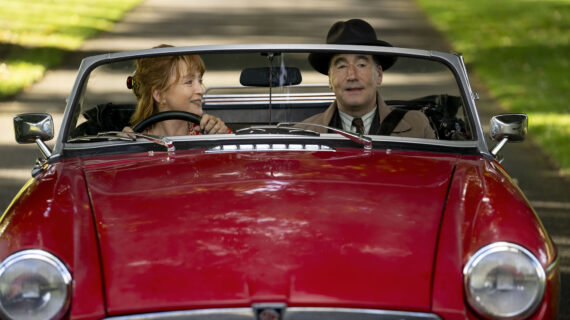
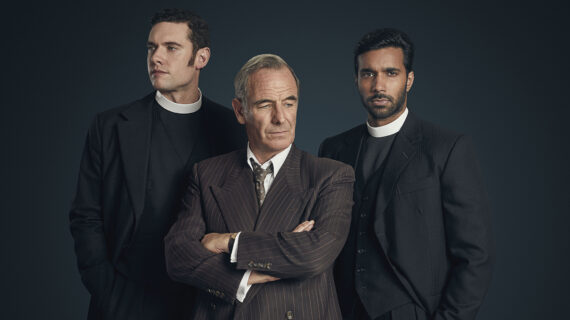
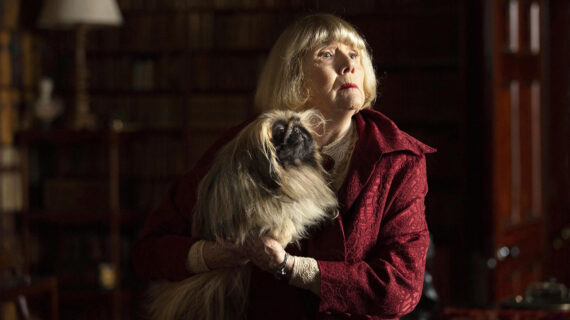

Follow Us